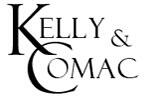Disincorporation - is it worth it?
Your business has suffered a dip in the last couple of years and you’re looking to downsize. As part of the process you want to close your company and operate as a sole trader instead. What are the tax consequences?

Out of date advice
In the past many sole traders were advised to run their business through a company to save tax, typically by taking most of their income as dividends. The trouble is increased tax rates on dividends and other factors mean that the advantages have eroded, particularly for smaller businesses. Some business owners can now reduce their tax bills by running their business as a sole trader or partnership.
Apart from tax and NI costs, running your business through a company usually involves additional expenses, e.g. accountants’ fees.
A simpler life
The tax rules for unincorporated businesses are less complicated compared with companies. For example, you can work out your taxable profits using the cash basis and simplified expenses. In contrast, a company must navigate a tricky regulatory landscape of company law, accounting and corporation tax (CT) before any remuneration even reaches the director shareholder.
What is disincorporation?
Disincorporation is when a company transfers its business and assets to a sole trader or partnership. For the reasons we’ve mentioned this can be attractive, but it can also trigger CT charges which must be factored into your decision on whether or not to disincorporate.
CT consequences
In the accounting period up to disincorporation your company is liable to CT on trading profits in the usual way plus CT on gains arising on the business transfer.
Any losses your company made from trading which haven’t been used to reduce its CT liability can’t be transferred to use against the profits from the sole trader/partnership business.
Stock and equipment. The transfer of stock and equipment to the sole trader/partnership business is usually at market value. If this exceeds the value for tax purposes, the difference is chargeable to CT. This tax can be avoided by making elections to transfer stock and equipment at their tax value.
Property and goodwill. If your company owns property, say its trading premises which has increased in value, the gain is chargeable to CT. The same may be true for goodwill. Stamp duty isn’t usually payable but it might be if there’s a mortgage on the property.
No tax is due on the transfer of goodwill that your company created from scratch and which doesn’t show in its accounts. If your company is VAT registered the transfer of a going concern rules mean there’s no VAT chargeable on the transfer of assets.Avoid surprises by asking your accountant to forecast the immediate, short-term and ongoing consequences of disincorporation.
Related Topics
-
Get ready for Making Tax Digital for Income Tax
If you’re one of the (un)lucky individuals who need to join Making Tax Digital for Income Tax (MTD IT) from 6 April 2026, you probably know that this involves submitting regular, digital records to HMRC. But what do you need to do to prepare?
-
CT61
-
Repayment thresholds for student finance confirmed
Repaying student finance can seem complicated, with a number of different plan types each having different repayment thresholds. The thresholds for the forthcoming year have just been confirmed. What’s the full story?

 This website uses both its own and third-party cookies to analyze our services and navigation on our website in order to improve its contents (analytical purposes: measure visits and sources of web traffic). The legal basis is the consent of the user, except in the case of basic cookies, which are essential to navigate this website.
This website uses both its own and third-party cookies to analyze our services and navigation on our website in order to improve its contents (analytical purposes: measure visits and sources of web traffic). The legal basis is the consent of the user, except in the case of basic cookies, which are essential to navigate this website.